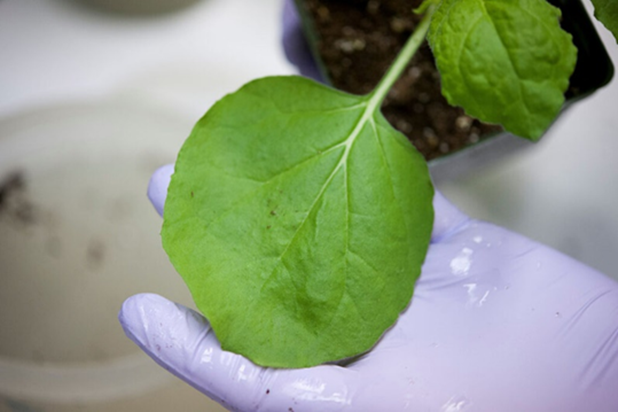By Treena Hein. 15-12-2021

The world’s first plant-based livestock vaccine (for Newcastle disease in poultry) was approved in 2006 in the US. Now, there is one for Classical Swine Fever (CSF, also known as hog cholera) in pigs.
Because of the advantages that plant-based have in comparison to other types of vaccines, more of them for pigs and other livestock may be coming. The production of plant-based vaccines falls under what is known as “biopharming” or “plant molecular farming,” where genetically modified plants are used to produce a wide range of pharmaceuticals and industrial products.
Efficient way to deliver vaccines
“Early work on plant-based pharmaceuticals focused on using food crops such as corn and rice to hopefully develop a cheap, efficient way to deliver vaccines,” explains Dr Donald Stewart, CEO of the Canadian plant-based biopharmaceutical company PlantForm Corporation. “However, progress in this area slowed around 2002 due to concerns about cross contamination of other field crops.”
Non-food crops
Non-food crops like tobacco then came into the spotlight. Tobacco is a very suitable plant for biopharming, with fast growth and genetics that are well understood. Over many years, tobacco plants have been genetically engineered to produce therapeutic proteins, monoclonal antibodies and vaccines to treat cancer, inflammatory diseases and other conditions. Other plants used in biopharming include duckweed, moss and alfalfa.
Compared to other culturing systems for biological drugs, plant-based systems are cheaper, faster and larger in capacity, with unlimited scale-up. They also offer a lower risk of contamination from animal and/or human pathogens and can produce novel and complex molecules that cannot yet be produced with animal cell cultures. Novel plant-based pharmaceuticals follow the same regulatory approval processes as other biologic (large molecule) protein drugs.
How plants are used to make drugs
Dr Stewart explains that there are 2 main ways to genetically modify plants to turn them into “mini-factories” for drug production: through a process called “transient expression” or by developing lines of ‘stable transgenic’ plants.
“With transient expression methods, plant leaf material is infiltrated with an Agrobacterium suspension that contains the genetic material for the target therapeutic protein or antibody,” Dr Stewart explains. “This involves immersing fully-grown plants in the suspension under vacuum pressure, which enables the Agrobacterium to penetrate the plant cells to introduce the genes of interest, see Figure 1. The plant’s DNA is changed so that the desired protein is produced. The plants continue to grow for another week or so, then they are harvested, and the protein is extracted and purified to make a biopharmaceutical drug.” More info at: https://www.pigprogress.net/health-nutrition/plant-based-vaccine-coming-forclassicalswinefever/?utm_source=tripolis&utm_medium=email&utm_term&utm_content&utm_campaign=pig_progress
